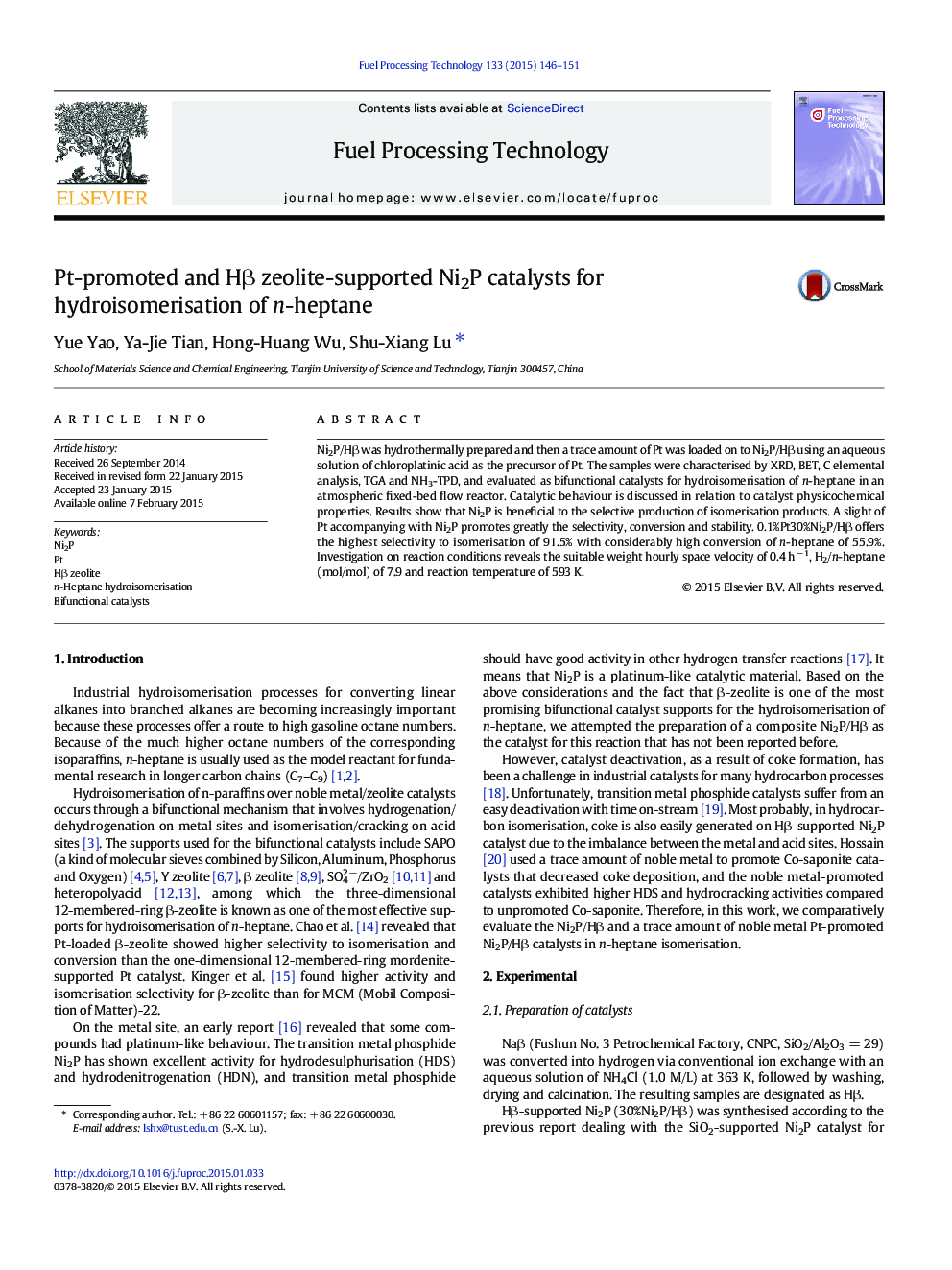| Article ID | Journal | Published Year | Pages | File Type |
|---|---|---|---|---|
| 209517 | Fuel Processing Technology | 2015 | 6 Pages |
•Pt-promoted Ni2P/Hβ catalysts were studied in hydroisomerisation of n-C7.•A trace amount of Pt was introduced to mitigate coke deposition on Ni2P/Hβ.•0.1%Pt30%Ni2P/Hβ offers 91.5% iso-selectivity with 55.9% conversion of n-C7.•A slight of Pt improves the catalytic stability in hydroisomerisation of n-C7.
Ni2P/Hβ was hydrothermally prepared and then a trace amount of Pt was loaded on to Ni2P/Hβ using an aqueous solution of chloroplatinic acid as the precursor of Pt. The samples were characterised by XRD, BET, C elemental analysis, TGA and NH3-TPD, and evaluated as bifunctional catalysts for hydroisomerisation of n-heptane in an atmospheric fixed-bed flow reactor. Catalytic behaviour is discussed in relation to catalyst physicochemical properties. Results show that Ni2P is beneficial to the selective production of isomerisation products. A slight of Pt accompanying with Ni2P promotes greatly the selectivity, conversion and stability. 0.1%Pt30%Ni2P/Hβ offers the highest selectivity to isomerisation of 91.5% with considerably high conversion of n-heptane of 55.9%. Investigation on reaction conditions reveals the suitable weight hourly space velocity of 0.4 h −1, H2/n-heptane (mol/mol) of 7.9 and reaction temperature of 593 K.
Graphical abstractCatalytic stabilities of Ni2P/Hβ and PtNi2P/Hβ catalystsCatalytic performance of various catalysts; reaction conditions: reaction temperature 593 K, WHSV 0.4 h>-/>−1, H2/n-heptane (mole) 7.9.Figure optionsDownload full-size imageDownload as PowerPoint slide
